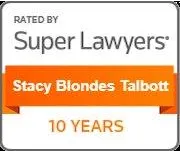Experienced Attorney Helps Clients Locate Hidden Assets and Income in Maryland Divorces
Bethesda family lawyer works to secure division of all marital property
In Maryland, divorcing spouses should sign financial disclosures stating that they have listed all marital assets and contain a penalty clause if concealed assets are discovered after the divorce. Not doing so can result in significant consequences, including having to pay a spouse’s legal fees. However, some parties try to beat the system and shield certain items. Even if you suspect dishonesty on the part of your spouse, it can be difficult to locate hidden assets without the assistance of a qualified Maryland family lawyer. The Law Office of Stacy B. Talbott, LLC in Bethesda advocates on behalf of clients in difficult divorces and has extensive experience uncovering assets that clients’ spouses have attempted to withhold from the equitable distribution process.
Types of assets that individuals hide during the divorce process
Any property is subject to being omitted from a required financial disclosure, but assets that are commonly hidden during a divorce include:
- Funds in undisclosed checking, savings and investment accounts
- Assets secretly held by friends or family
- Employee benefits such as stock options, ESOP plans and RSU stock
- Unreported or underreported income
- Real estate
In matters relating to property division, Maryland applies the principle of equitable distribution, which means assets are divided fairly, not necessarily equally. Deliberately hiding or underreporting assets eliminates the possibility of an equitable outcome and can result in significant consequences, including an award of the property at issue to the innocent spouse or an order requiring the offender to pay the spouse’s attorney’s fees.
Signs your spouse might not be providing accurate financial information
If your spouse has kept financial information from you or you become suspicious about missing funds or items, Ms. Talbott can help by reviewing the pertinent evidence. A dishonest party to a divorce might attempt one or more of the following techniques:
- Underreporting income from a solely owned business
- Accepting under-the-table cash payments for work
- Transferring assets to a friend or family member
- Undervaluing recent expensive purchases in order to sell them after the divorce
- Claiming an asset was lost or never existed
- Moving funds between various financial instruments, including off-shore accounts
Failing to take assertive action could lead to an unjust outcome that cannot be undone.
Montgomery County attorney uses various methods to stop dishonest parties
If your spouse asserts that their previously stable or flourishing business is suddenly struggling, or you suspect they are receiving cash payments for work, Ms. Talbott may subpoena bank statements, tax returns, summaries of safe deposit box contents, credit card statements and other financial documentation. One way to show that an individual is earning more than they report is to look at their expenses, such as trips, clothing, electronics and restaurant meals, to see if those expenses exceed income. Ms. Talbott can help you gather other evidence such as photos of tangible items such as artwork, electronics, and jewelry. In certain cases, a forensic accountant can be retained to track financial transactions, find foreign accounts or untangle complex legal structures that make it tough to identify the true asset owner.
Contact an experienced Maryland family law attorney
The Law Office of Stacy B. Talbott, LLC handles the full spectrum of family law matters, including divorces involving allegations that one spouse is hiding assets. Please call 301-424-7799 or contact her online to schedule a consultation at the firm’s Bethesda office.










